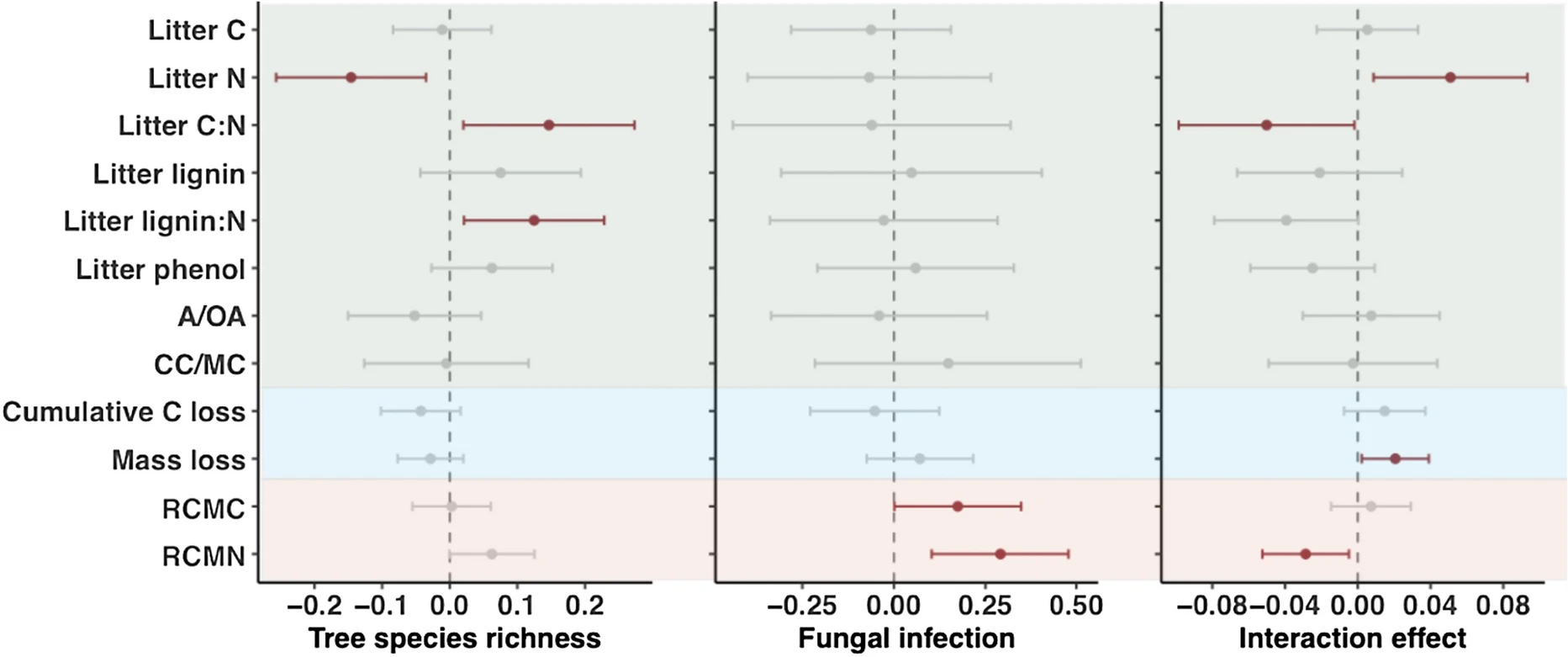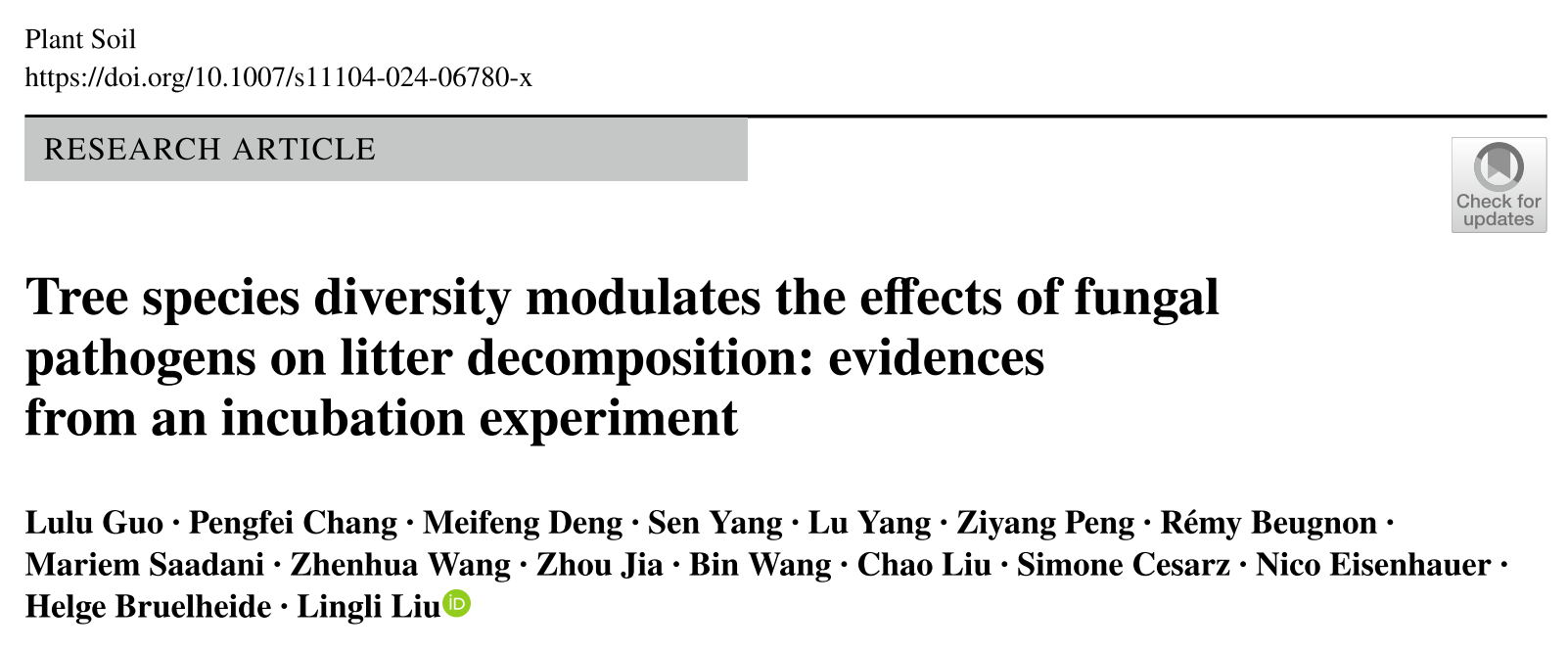Litter decomposition is a major determinant of carbon (C) and nutrient cycling in ecosystems, and contributes to soil organic carbon (SOC) formation. Ongoing global changes are exacerbating biodiversity loss, potentially elevating foliar fungal pathogen infections and consequently impacting litter quality and quantity. However, the potential interplay between biodiversity loss and fungal pathogen infection on litter decomposition and SOC formation remains largely unknown.
Using leaf litter collected from China’s large-scale subtropical forest biodiversity experimental platform (BEF-China), we conducted a 383-day incubation experiment and measured initial litter quality, litter mass loss, and incubation-induced changes in mineral-associated soil C and nitrogen (N).
In this study, We found that litter from higher richness plots exhibited lower N concentration and higher carbon to nitrogen ratio (C:N). Moreover, tree species richness exerted control over the effects of fungal pathogen infection on litter quality, decomposition, and N turnover (Fig. 1). Under higher richness, litter with higher fungal infection levels tended to have higher N concentration and lower C:N, thus leading to faster decomposition rates and more soil N loss. Meanwhile, litter with elevated fungal infection levels contributed more to litter C retained in soil (Fig. 1).

Fig. 1 Alpha-diversity indices of root-associated fungal communities. (a, c) Comparison of fungal observed richness, and Shannon diversities, respectively between all arbuscular mycorrhizal (AM) and ectomycorrhizal (EcM) TSPs. (b, d) Within the tree diversity level, differences between AM and EcM TSPs for the respective fungal alpha-diversity measures.
Our findings indicate that changes in litter chemistry and fungal pathogen infection rates induced by biodiversity loss could affect decomposition and the extent of C stabilized in soil, highlighting the significance of considering fungal pathogen infection in studies related to biodiversity and biogeochemical cycles.
Literature:
Lulu Guo, Pengfei Chang, Meifeng Deng, Sen Yang, Lu Yang, Ziyang Peng, Rémy Beugnon, Mariem Saadani, Zhenhua Wang, Zhou Jia, Bin Wang, Chao Liu, Simone Cesarz, Nico Eisenhauer, Helge Bruelheide, Lingli Liu*. 2024. Tree species diversity modulates the effects of fungal pathogens on litter decomposition: evidences from an incubation experiment. Plant and Soil. Onine. http://doi.org/10.1007/s11104-024-06780-x

